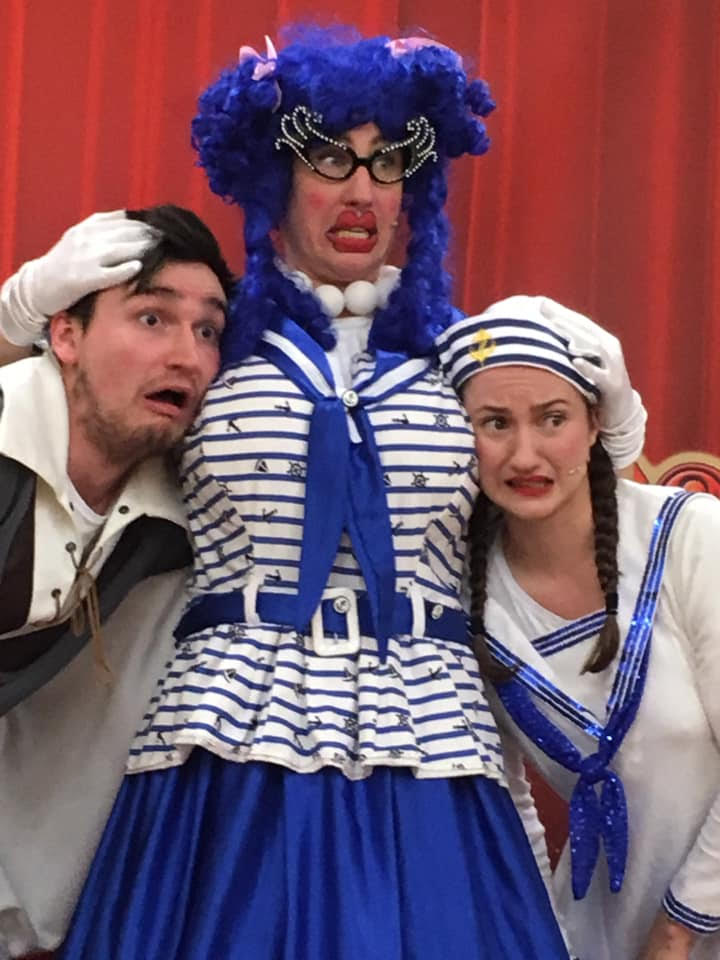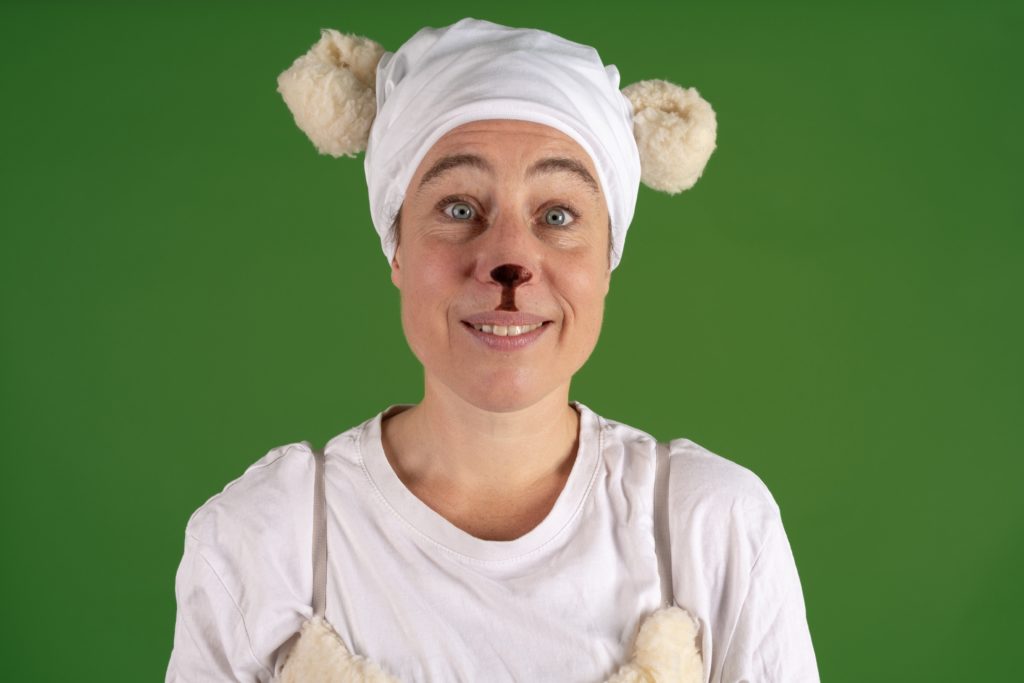
HAVE you ever felt like an outsider? Hannah has.
Her solution? She has decided to live as a sheep. “But don’t worry, she’s thought it all through. She’s even got a raincoat. And she’d love to tell you all about it at her Big Goodbye Party. Everyone is invited,” says Leeds writer-performer Ruth Berkoff, introducing The Beauty Of Being Herd, whose tour is booked into Theatre@41, Monkgate, York, for September 12 and Terrington Village Hall on September 28.
“Fresh from the Greater Manchester Fringe, where it was nominated for Best Newcomer and Best New Writing (runner up), this is my debut show and I’m touring it around Yorkshire in September as well as to Bristol [Circomedia, October 4],” says Ruth.
“Whether you’re shy, neurodivergent, have accidentally put your foot in it or simply had to spend time with people that weren’t ‘your people’, this is a show for anyone who’s ever found it hard to fit in.”
Ruth knits Hannah’s quirky yarn together with comedy, original songs, heartfelt sharing and even a rave scene, creating The Beauty Of Being Herd in tandem with director and dramaturg Georgia Murphy, sound designer Isolde Freeth-Hale and movement consultant Izzy Brittain.
Born and bred in Leeds, Ruth trained in contemporary circus at Circomedia, Bristol, and in theatre and clowning at Ecole Philippe Gaulier, France.
Now comes her first solo show, prompted in part by the consequences of suffering a brain haemorrhage in 2017. When she could not find any stories from other survivors, she decided to write her own.
“I write so that people don’t feel so alone,” she reasons. “As an ex-Samaritan, I care deeply about people feeling understood. As a four-time pantomime dame, I care passionately about people having a brilliant time at the theatre.”
Praised in the British Theatre Guide for her “warm hearted and empathic” performing skills, she takes The Beauty Of Being Herd on the road from tomorrow.
Here Ruth discusses feeling like an outsider, fitting in, sheep, clowning, the Samaritans and “the beauty of being herd” with CharlesHutchPress
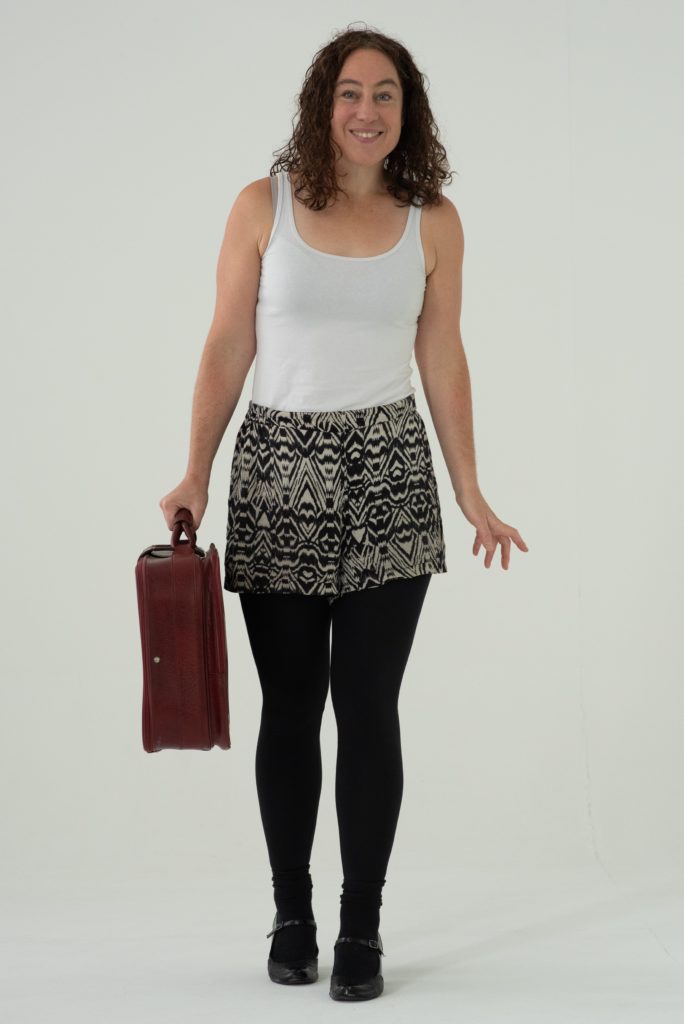
What were your theatrical and creative experiences when growing up in Leeds?
“As a child I wanted to be an actor. I went to drama lessons outside of school and then got on the performing arts course at Intake High School. Intake was a state school that had an extra performing arts course for around 30 pupils in each year.
“Mel B, from the Spice Girls, famously attended Intake, leaving the year before I arrived. I stayed at Intake until Year 9 when my dad died and my acting spark faded. I did my drama GCSE at a different school, but didn’t return to acting again until I was 30.”
Did you fit in, like a sheep, or stand out like a zebra in a field of racehorses?
“Haha. I’ve never been the best at fitting in, but I do try.”
Where do you live now? Did you choose it to fit in or stand out?
“I live deep in the city of Leeds, surrounded by buildings and roads, but I long for more nature. The area of Leeds that I live in (Harehills/Chapeltown) is such a mixing pot that I think everyone both fits in and stands out.”
What led you to studying contemporary circus at Circomedia, Bristol, and theatre and clowning at Ecole Philippe Gaulier, France?
“At the risk of sounding morbid, it was actually another death. Deaths and big losses can really shake things up! One of my best friends died in a road traffic accident and it made me face my own mortality; I realised that when you die, people don’t talk about what was on your To Do list, they talk about what you actually did.
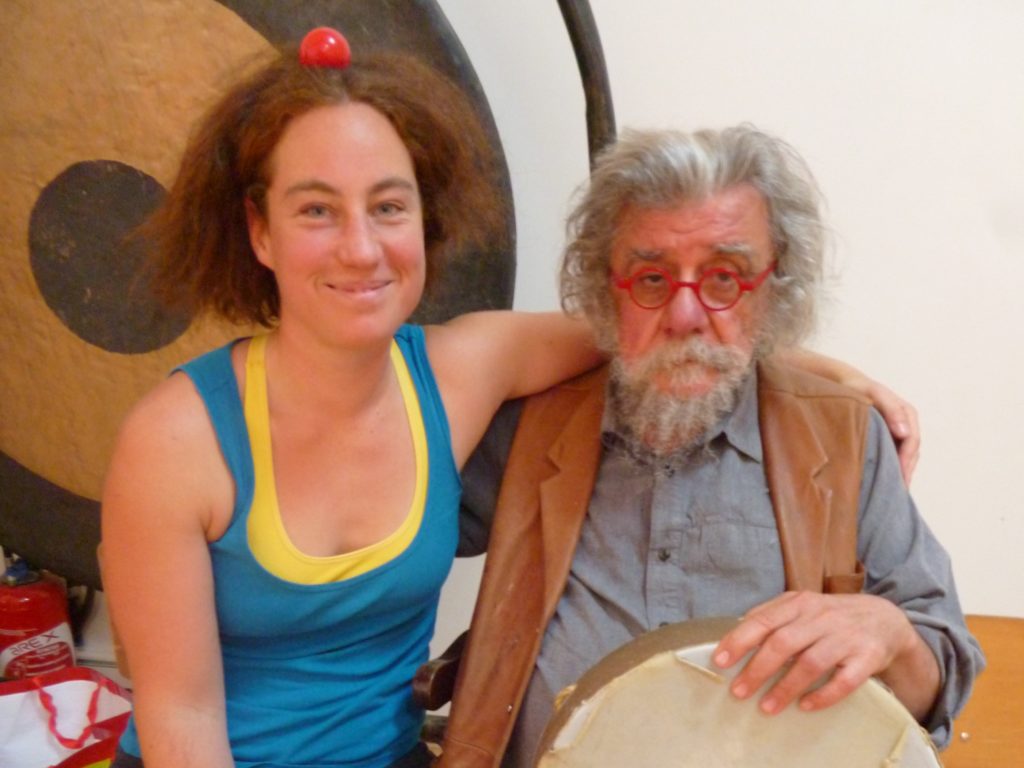
“So I wrote down what I REALLY wanted to do and ‘get back into acting’ was there. I attended [Leeds company] Red Ladder’s Intro To Acting course, Red Grit, and I felt ALIVE again.
“On a recommendation from a friend, I went on the three-month Circus in Performance course at Greentop in Sheffield. I enjoyed it so much, I applied for a full-time course at Circomedia.
“In the summer holidays after my first year at Circomedia, I went to Ecole Philippe Gaulier on a four-week summer school and I fell in love with the challenge of working with Philippe, so I decided to leave Circomedia and focus full time on theatre.”
What life skills did the courses teach you?
“Circomedia taught me about consistent hard work; we trained so hard there! It also taught me about fun and the permission to explore and play; that place gave me a lot of confidence. “Gaulier taught me how to really listen to the audience and to play together. I had some beautiful moments on that stage (as well as many, many failures).”
The clown is the outsider in the circus world, the disruptive loon, like The Fool in Shakespeare’s plays. Discuss…
“The clown in the circus world is both on the outside and exactly in the centre. They say things that other people don’t put a voice to. And with an innocence. Learning clown with Philippe Gaulier was definitely an experience, it’s ironic how HARD it can be to be so simple, but Viggo Venn (winner of Britain’s Got Talent 2023, who I studied with at Ecole Philippe Gaulier) makes it look easy.”
How did you come to work for the Samaritans? All part of being warm-hearted and empathic?
“We had some brushes with suicide within our family when I was a child and as a result, I wanted people to know that they could always come to me if they needed. I learnt from a young age how to give people space to be heard – sometimes I think it’s my superpower (when I remember to use it!)
“When I was at university in Belfast, reading English and Philosophy, I joined the university listening service, Nightline, and then Samaritans. It gave me a sense of purpose. I knew I often helped people and also it was nice to be part of a secret group of people in a new city.”
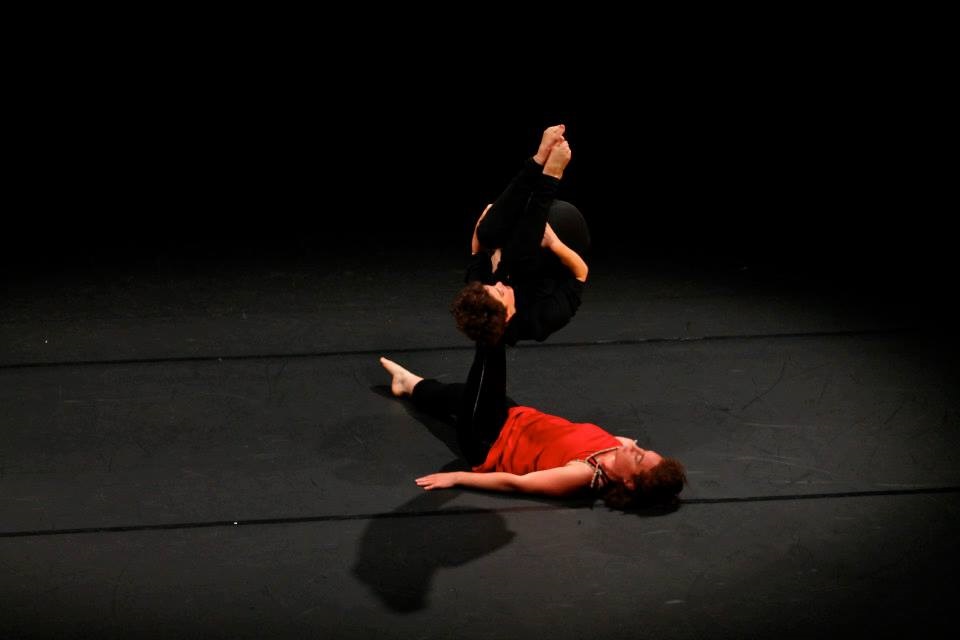
Those qualities seem to be increasingly rare in our solipsistic, me-me-me world. Discuss…
“I had to look up the word ‘solipsistic’ – every day’s a school day! Yes, we’ve got more and more solipsistic, more focused on the individual and less and less focused on community. The show discusses how this can leave some people behind.
“However, I don’t really think it’s quite as simple as ‘group’ being good and ‘individual’ being bad. Lots of great things have happened from people daring to be different, like challenging abuse and gender norms and so much innovation.
“Also, I’ve found I have to be a little selfish to make art, otherwise I would be forever reading stories to my nephews and never doing my own thing.”
What were the roots of the show? What inspired it? Would the answer lie within this revelation: “Ruth had a brain haemorrhage in 2017. When she couldn’t find any stories from other survivors, she wrote her own”?
“My brain haemorrhage definitely got me writing again. I wrote my story so that the people who had a brain haemorrhage after me didn’t feel as alone. I became the person who says the thing that others don’t dare say out loud, which can be really comforting for other people.
“I built up confidence writing and sharing the story of my brain haemorrhage. But the roots of the show are a mixture of my walks in the Yorkshire countryside, which is full of sheep, and also the feeling of not knowing how to really connect with other people sometimes. I guess it’s an exploration of loneliness. And sheep. But with a lot of humour. And a few songs.”
How did you then turn that into creating Hannah and her story?
“Hannah was created for a night called Leeds Pub Theatre. This was my first time writing for the stage (since drama GCSE). They run two events a year, each with a different theme, and this one was ‘From Darkness To Light’.
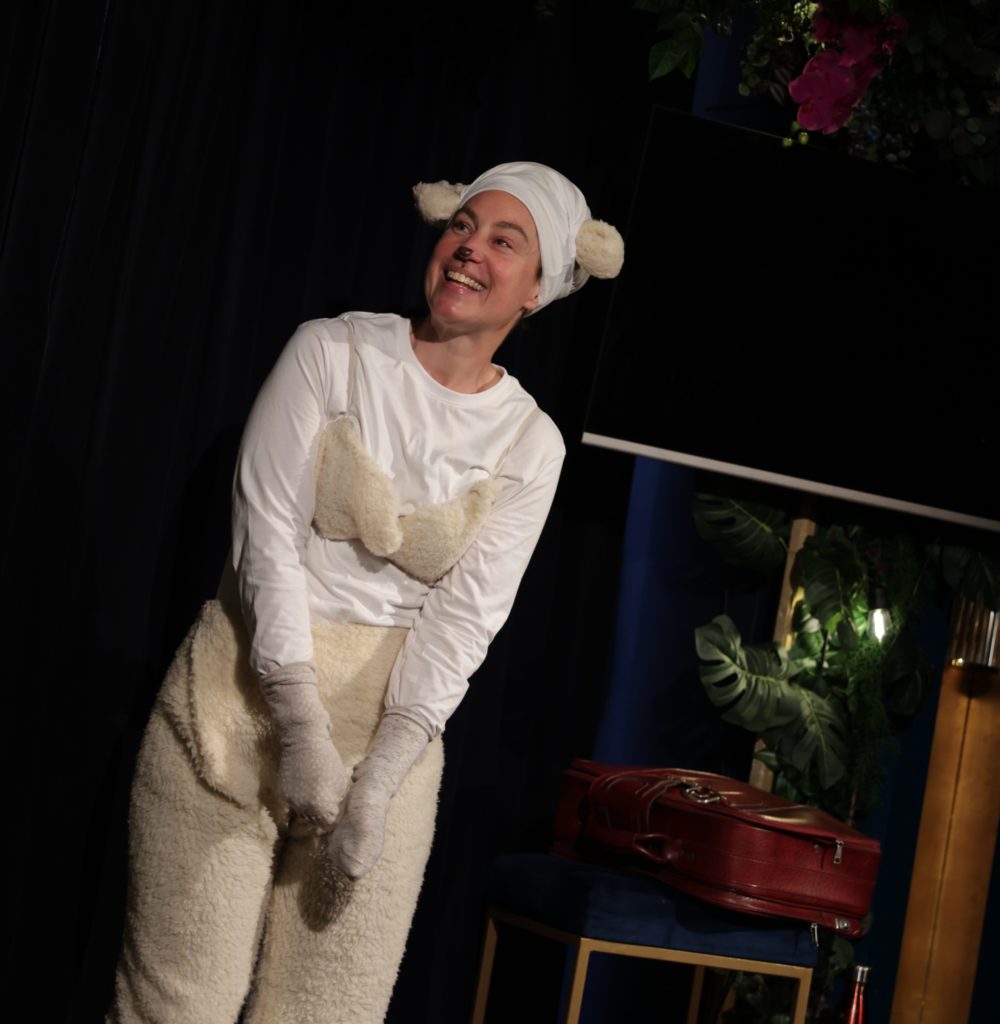
“I wrote a monologue about someone at their first rave, talking to all these people she doesn’t know, then the sun rises. It was about that shift from ‘everything is possible!’ to ‘I think I need to leave’.
“I loved the character, I loved how she was so enthusiastic and innocent and up for it, yet lonely and unsuccessful at making friends. I wrote a few more monologues for her and at the same time, I was working on an idea of a woman who discovers strength through being with sheep. The sheep idea wasn’t quite working until I put Hannah into the story and then it was like, ‘Aha! We’ve got it!”
Is Hannah your stage alter ego or a character?
“Hannah isn’t me, she’s a different character. She’s much sweeter than me, but at the same time, I think there’s a lot of Hannah in me and all of her words did come from my head. I get her. Maybe she is my alter ego. Or one of them…”
You met director/dramaturg Georgia Murphy when you were at Ecole Philippe Gaulier. When did you first work together?
“I met Georgia on the first day of summer school in 2013. I liked her immediately. We worked together a few times at Ecole Philippe Gaulier, most notably in a clown number where I was waving at the audience (I don’t remember anything else about it – oh, other than Georgia and Steve were in a boat).
“That school, most of the time there, it was just failure after failure; that’s kind of how it works, but I always enjoyed spending time with Georgia and going on walks together and bounding through fields of flowers together.
“I knew I’d wanted to work with her from day one but she was in London and I was in Leeds and it was only when I got Arts Council England funding through the DYCP grant [Develop Your Creative Practice] that I was able to hire her.
“It was perfect because she was up north at the time, working as associate director for Bolton Octagon.”
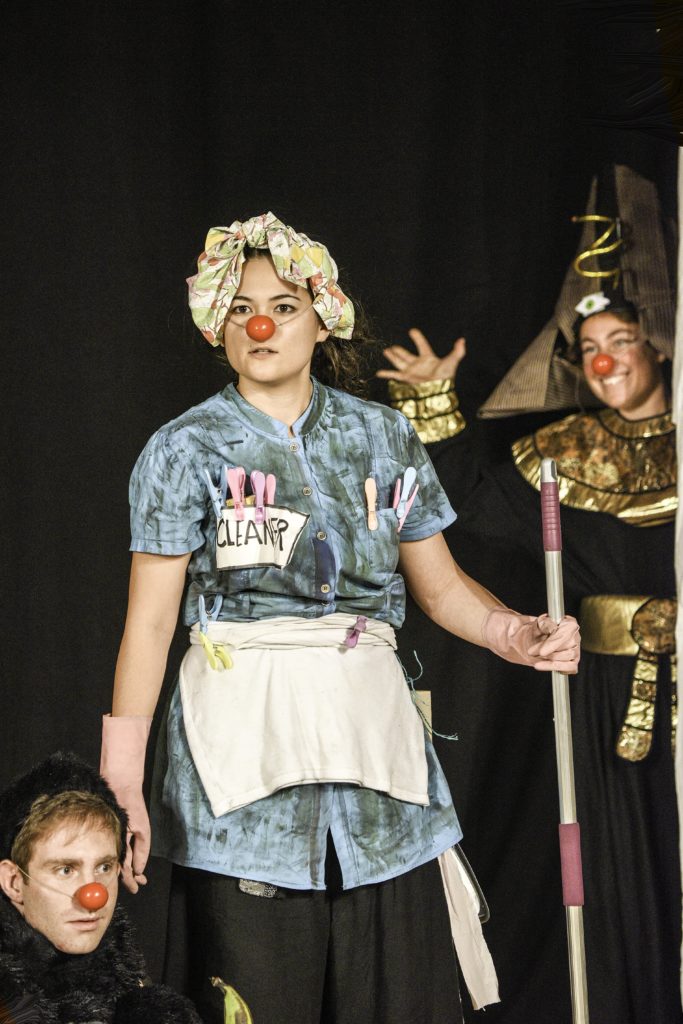
What drew you to working together? What do you bring out of each other?
“I think we both have the same love for hilarity, the surreal, and we both know heartbreak too. It’s handy having the same shorthand after studying with Philippe for two years together, so that makes things easy.
“Like, Georgia can say, ‘Right, let’s play such and such game’, and I’m like, ‘Let’s go’. Also, I felt safe with her in the devising space because we’ve already been through quite a lot together. I was able to tell her what I needed, which was sometimes to go in the corner, put a timer on and rant for a minute, saying ‘This feels TERRIBLE, it’s rubbish! I can’t do it’. And once the timer went off, it was like, ‘OK, let’s crack on’.
“That was a tip I learnt from Kath Burlinson at Authentic Artists and it is so genius! Making something creative, we often come up against the inner critic. This gives it its little moment to shine, and then it’s time to get on. Georgia was understanding about that.
“I’m not sure exactly what I bring out in Georgia. I hope it’s freedom to get silly and experiment. I’m up for trying anything. And I trust her, so I guess that must be a joy for her too. I don’t know for sure though, I’d have to ask her.”
Georgia ensures the show remains playful despite covering some heavy topics. How does she do that, and why was that important in the show’s creation?
“Humour and fun and playfulness are so important, especially when you’re talking about the pain of feeling like you don’t belong. I’ve watched work that has a heavy subject matter and is presented in a heavy way, and it feels awful! Life is hard enough; we might as well laugh at it.
“Georgia brought in games, improvisations, Post-It notes and her general playful energy. We experimented a LOT in that space. Lots got put in the bin, but there was also some magic. And that’s the stuff we bottled up and put in the show.”
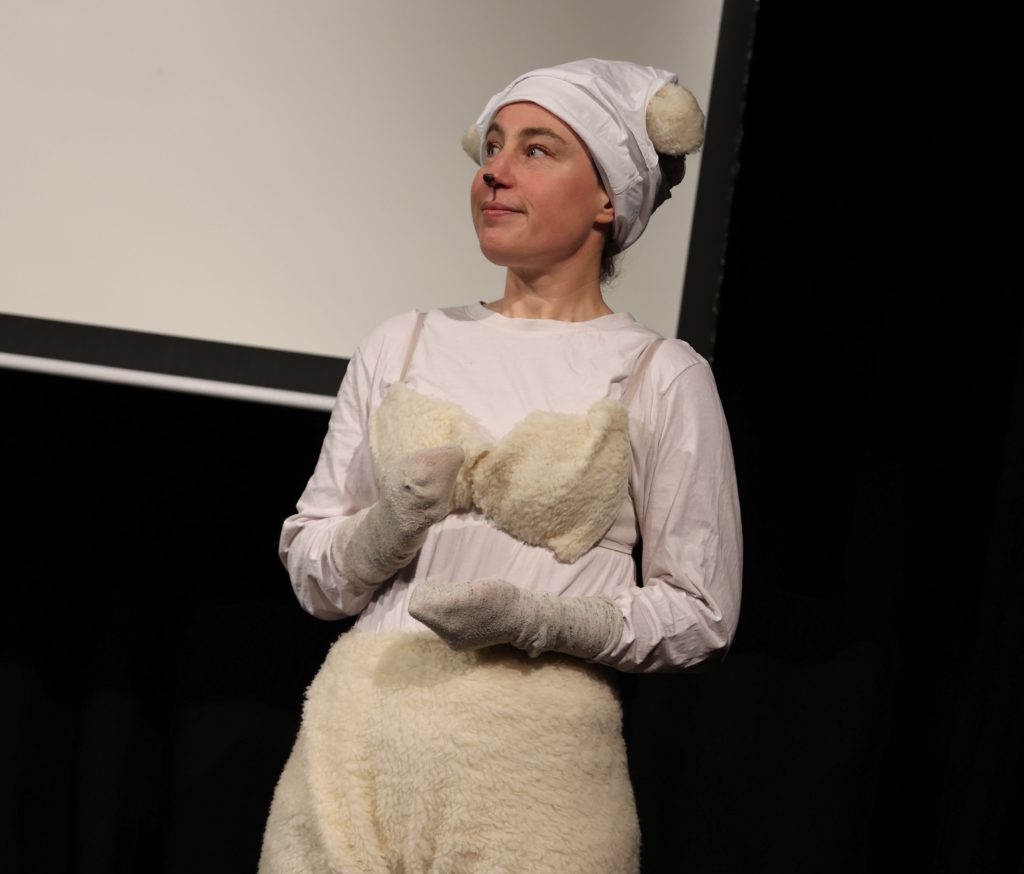
Shay Rowan
You write “so that people don’t feel so alone”. Develop that sentiment further…
“I know people who have taken their lives, and people who have tried. I’ve felt lonely many times in my life and sometimes, as I found at Samaritans, what you need isn’t to be told a solution, it’s just for someone to be with you, to hold your hand as you find your own way through it.
“Just someone to say, ‘I hear you. I get you’. Life can be very lonely but the more we talk about it or listen to other people talking about it, the more we realise, ‘Oh, I’m not the only one’.”
In practical terms, how can you help someone who feels so alone make the decision to come out to the theatre?
“These shows are so, so lovely. I fall in love with the audience every time. It’s a great show to come on your own to because, for a start, Hannah is on her own too, so you won’t be the only one on your own.
“I often have people come on their own to the show and somehow, as the show goes on, there’s a sense of connection that is born in the audience. I can’t explain it, but people often comment on it. And I always hang around afterwards to say hi to anyone who wants to talk.”
In a nutshell, why should someone see The Beauty Of Being Herd?
“To be entertained. To feel something. To laugh and possibly cry.”
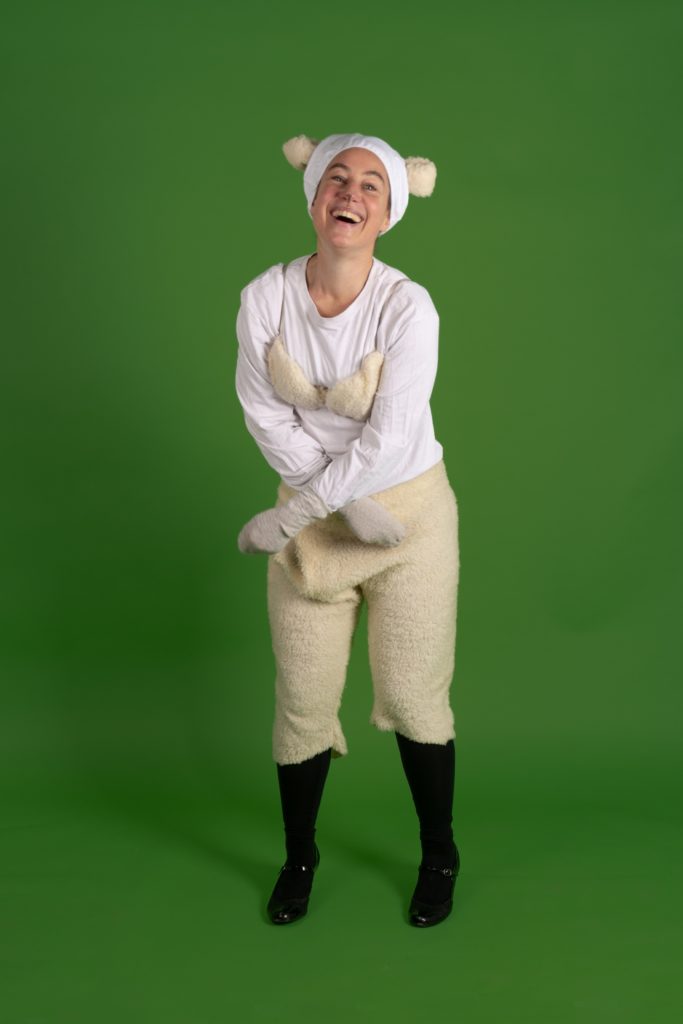
Sum up the show in six words.
“Bonkers, funny, heartfelt, many sheep facts.”
What is THE beauty of being herd?
“It’s a feeling of ‘not-aloneness’.”
What comes next for Ruth Berkoff?
“I want to keep on developing this show, get a new track for the rave scene and run more workshops for people to develop their creativity. And then I’d like to make another show. And another. And another. I’d also really like to get a team together so I’m not doing it all on my own.”
Ruth Berkoff: The Beauty Of Being Herd, Crookes Club, Sheffield, September 5, 7.30pm; Theatre@41, Monkgate, York, September 12, 7.30pm; Fire and Water, Sowerby Bridge, September 14, 7pm; HEART (Headingley Enterprise and Arts Centre), Headingley, Leeds, September 20, 7.30pm, and Terrington Village Hall, near Malton, September 28, 7.30pm. Age guide: 16+. Content warning: reference to non-consensual touch
Box office: Sheffield, trybooking.com/uk/DPPX ; York, tickets.41monkgate.co.uk; Sowerby Bridge, trybooking.com/uk/DPUO; Leeds, trybooking.com/uk/DPRY; Terrington, terringtonvillagehall.co.uk.
One more question:
Where do the original songs fit into the show?
“You’ll have to come and find out! I love the songs. Isolde Freeth-Hale, an artist and musician living in Bristol, and an old friend, turned my improvised songs into show tunes and they get a lot of compliments, especially The Thing About Sheep. Isolde made a sheep synth for that song, and it brings me so much delight every time I hear it.
“I don’t play any instruments in the show, I just sing. But in real life, I do sometimes play the guitar or piano.”
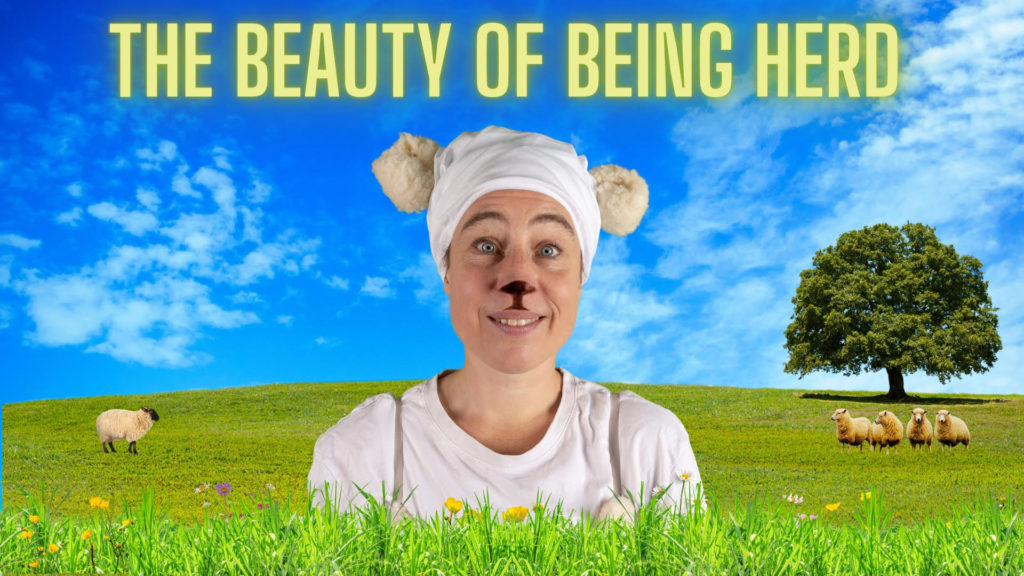
Did you know?
RUTH Berkoff has played pantomime dame – a traditionally male role – with Wakefield company Pocket Panto. “We did a Rural Arts tour every winter,” she says. “We went round North Yorkshire and based ourselves in Thirsk. My first year there was Cinderella in 2017-2018. It was a three-person team so I played an Ugly Sister and Prince Charming.
“The next year, the long-established dame, Jeremy [Stroughair], had had enough of being away from his family every single year, so Darren [Johnson], the writer-director, asked if I would consider playing the dame. I had a LOT of doubts about whether people would want a female dame and a lot of imposter syndrome, but what I discovered is that at the end of the day, what people want at the panto is to have a good time. And I provided that!
“I played Sarah the Cook and Queen Rat in Dick Whittington and the following year I played Mother Goose. Then I did another year in panto with Same Difference Theatre, playing an Ugly Sister and Prince Charming again in a different takeaway on the traditional Cinderella story.”
